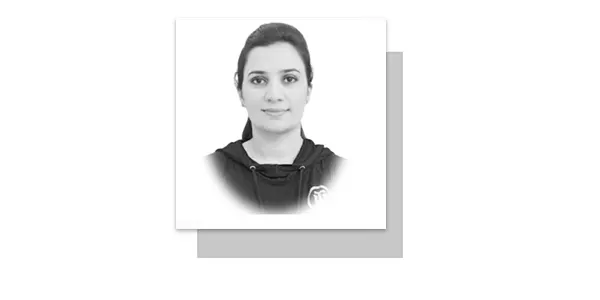PAKISTAN has a total population of around 208 million, with women constituting 49 percent of this number, according to the latest census. Approximately 29 percent of the total population falls within the age group of 15 to 29 years, with women making up half of this demographic, indicating a trend towards a more balanced sex ratio. Indeed, some successful women in Pakistan have set notable milestones for other women in the country. However, is it easy for these women to achieve such milestones and secure their positions, or do they face struggles similar to those experienced by an ordinary Pakistani woman today in the 21st century?
When examining success stories in Pakistan, Benazir Bhutto stands out as she served as the Prime Minister, becoming the first woman to lead a Muslim nation in modern history. Maryam Nawaz also made her mark as the first female Chief Minister of Pakistan, breaking new ground by leading one of the country’s most populous and significant provinces. Currently, there are 69 women serving in the National Assembly of Pakistan out of a total of 342 members. This includes 11 women among the 264 directly elected members. As of March 1, 2024, 39 out of the 60 reserved seats for women have been confirmed; however, the turnout of women in elections is still 17.4 percentage points lower than that of men. Ayesha A. Malik has made history as the first female judge of the Supreme Court of Pakistan. In the military, Nigar Johar Khan has become the first and only woman in the history of the Pakistan Army to reach the rank of Lieutenant General, and she is also the third woman to achieve the rank of Major General. Women now serve in all three branches of the armed forces in Pakistan as well as in the police department. Importantly, women are not lagging behind men in peacekeeping operations, with an estimated 572 female peacekeepers expected to be deployed by the end of 2024.
Despite the achievements of notable individuals, women in Pakistan continue to face significant challenges. These challenges range from character assassination to physical violence as they work to dismantle deeply entrenched stereotypes and affirm their capabilities in various fields. The women in this context demonstrate remarkable skills, intelligence, and determination, effectively navigating obstacles and making meaningful contributions to their environments. Their resilience and competence are evident. Unfortunately, some of their male counterparts continue to display gender bias in both subtle and overt ways. Women may perceive both genders—men and women—as equal in the workforce. However, many men still believe that women are not capable of performing at the same level as men. This attitude often stems from their life experiences. As a result, men tend to impose restrictions on women in both their personal and professional lives. In Pakistan, I have rarely encountered a successful woman who does not have at least one man in her life who undermines her achievements. This influence can be seen across various sectors, from politics to law enforcement and corporate environments, where men often negatively impact women’s careers in numerous ways.
Is this truly beneficial? Are we genuinely working to increase the number of successful women in Pakistan with this mindset? Or are we only facilitating educational opportunities for women while simultaneously confining them to traditional domestic roles due to fears surrounding their interactions with men in the workforce? Who will set these boundaries in 2025, and is it truly worth it? This ongoing disparity highlights the enduring impact of outdated societal attitudes toward gender that continue to affect many professional environments. Gender discrimination not only undermines the achievements of skilled women but also hampers the overall progress of teams, organizations, and society as a whole. When individuals are evaluated based on stereotypes instead of their actual abilities, it creates an unhealthy work environment that stifles creativity and innovation. The prevalence of these biases can lead to fewer opportunities for women, hindering their advancement and potential contributions to their fields. Moreover, persistence of these attitudes perpetuates a cycle of inequality, where women’s contributions are undervalued, resulting in an imbalance in representation at various leadership levels.
These issues reflect broader societal attitudes that reduce women to mere symbols of sexuality and patronage, hindering their progress and undermining their contributions to society. A critical examination of these dynamics reveals an urgent need for structural changes and cultural shifts to empower women and create an environment that supports their personal and professional development. Addressing this issue is crucial for fostering a more inclusive and equitable society, which will positively impact workforce culture. By challenging and changing these discriminatory attitudes, we can unlock the full potential of all individuals, regardless of gender. Ultimately, creating an environment where everyone is valued and given equal opportunities will benefit not just individuals, but also enhance the overall success and productivity of organizations and society as a whole.
—The writer is Assistant Professor at Dept of Government and Public Policy, NUST, Islamabad.










